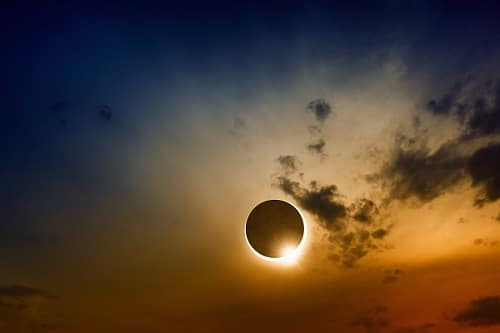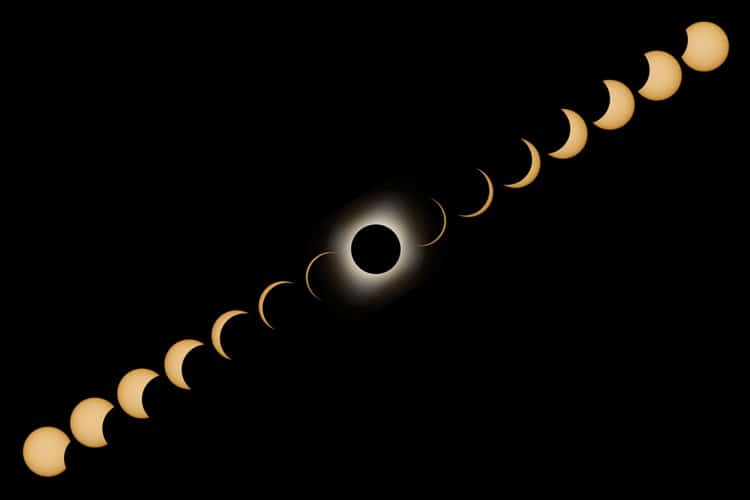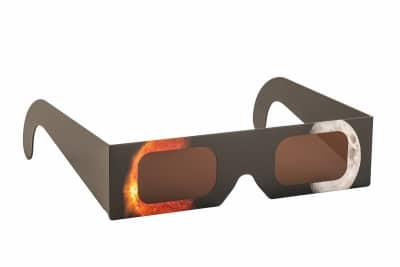
Don’t look directly at the sun! You’ve heard it before and it remains true, even during a partial solar eclipse.
If you have an appointment at the practice of Dr. Chris Walton during the month of August, don’t forget to grab a pair a free solar glasses (also called solar filters) from our team. These glasses allow you to view the upcoming total eclipse safely, without doing irreversible damage to your eyes.
This month, on Monday, August 21, parts of the United States will be in the path of a total solar eclipse. This extraordinary event occurs about every 18 months, according to Space.com. But it’s not visible everywhere in the globe. In fact, the last time a total eclipse was viewable from our country was in 1991, and it won’t be back again until April, 2024. The one occurring this year is incredible because of the wide swath of the country that will be in the path of totality – that is, the 70-mile wide path stretching from Oregon to South Carolina, inside which the disk of the moon will fully cover the disk of the sun. Viewers will be in for a few minutes of sheer thrills, as twilight suddenly descends upon the middle of the day and the sun’s outer atmosphere (the corona) blazes like a halo around the dark circle of the moon.
Even if you are outside of the path of totality, viewers in all other areas of the continental US will be able to see a partial eclipse. The sun will be partially covered by the moon.
Do not look directly at the sun at any point during the partial solar eclipse. It is okay to view the total eclipse with your naked eye ONLY when the sun is 100% covered by the moon. In fact, you’ll have to remove them in order to see anything at that point. But you must wear your glasses right before totality, and as soon as you see the disk of the sun growing after totality.

In the photo above, the only time it is safe to remove your solar glasses is during the brief minutes of totality, the phase right in the center, when the solar rim has disappeared behind the moon.
Looking at the partial eclipse without solar glasses can cause blindness. Sunlight is intense light. It’s so intensely bright it can blind you when you look at it because of the extreme eye damage that occurs. It’s as though your eyeballs are sunburned permanently. The solar radiation strikes the retinas and damages the cells. It causes what ophthalmologists call “retinal photochemical injury.” The end result can be legal blindness at worst, and some form of visual damage at least.

Here is what to look for in solar glasses:
- When you are choosing glasses, look to see if they meet the international standard. You will see this somewhere on the glasses: ISO 12312-2.
- Dr. Walton’s team is handing them out to patients who have appointments with us during the month of August.
- The solar glasses should not be torn, damaged, scratched or ripped in any way. If they are, they are useless for viewing the eclipse.
- The glasses should have the manufacturer’s name printed on them, as another sign that they are legitimate.
- Do not use solar glasses older than three years.
Look out! Recent news reports have cited a rash of fake solar glasses making their way into the hands of unknowing eclipse viewers. Follow the tips above to avoid these fakes. If you don’t have an appointment with Dr. Walton this month, visit the American Astronomical Society’s approved solar filter vedors page to find out where to purchase solar filters.
Once you have your safe solar filters in hand, you are ready to enjoy this rare and extraordinary event!
Dr. Walton and our team are committed to your best vision. To learn more about us, or to schedule an appointment in Mobile, Alabama, please call 251-341-3385.


